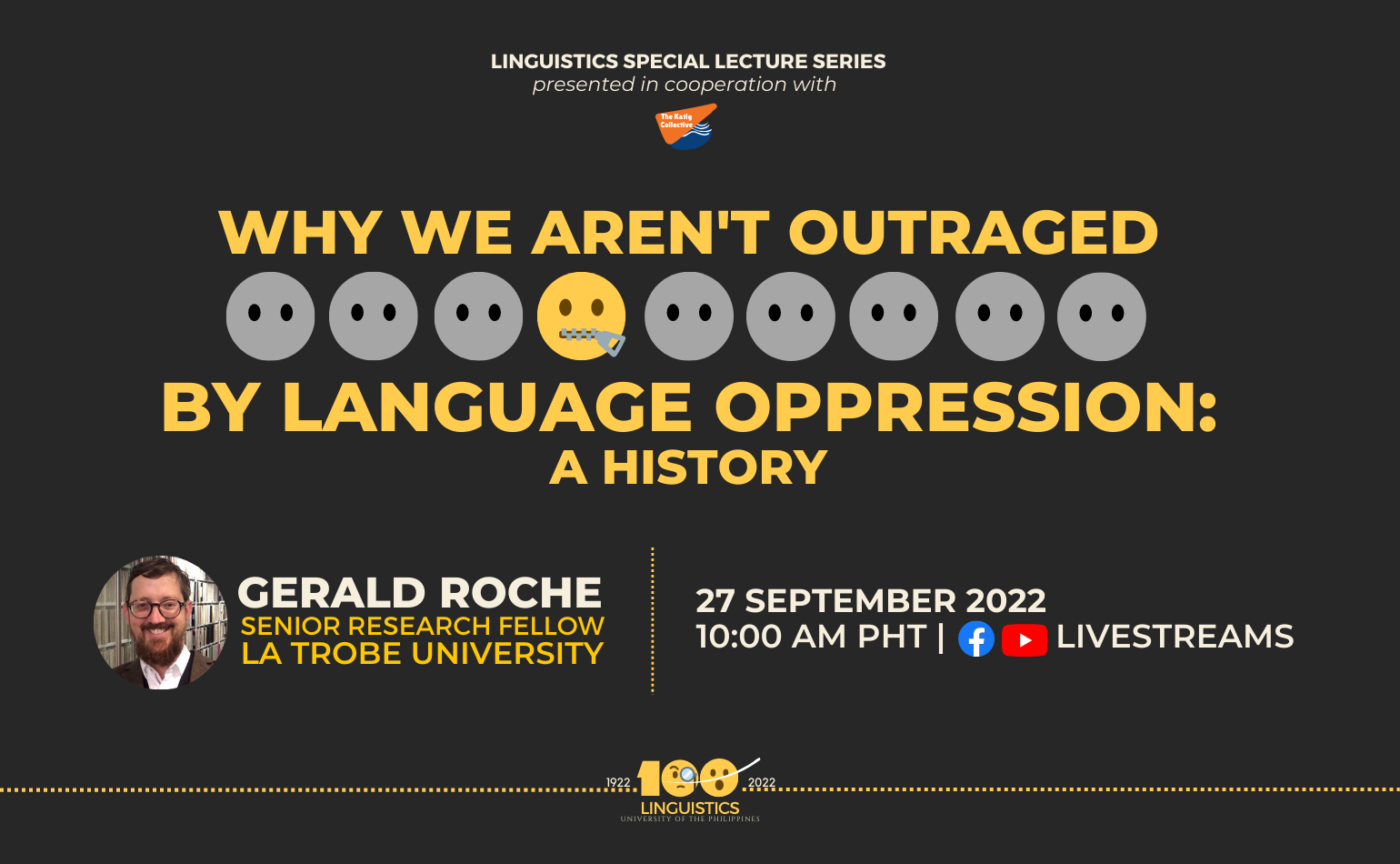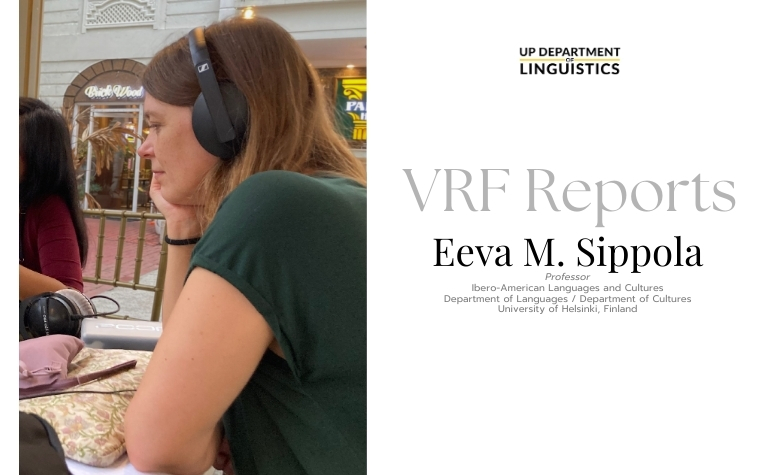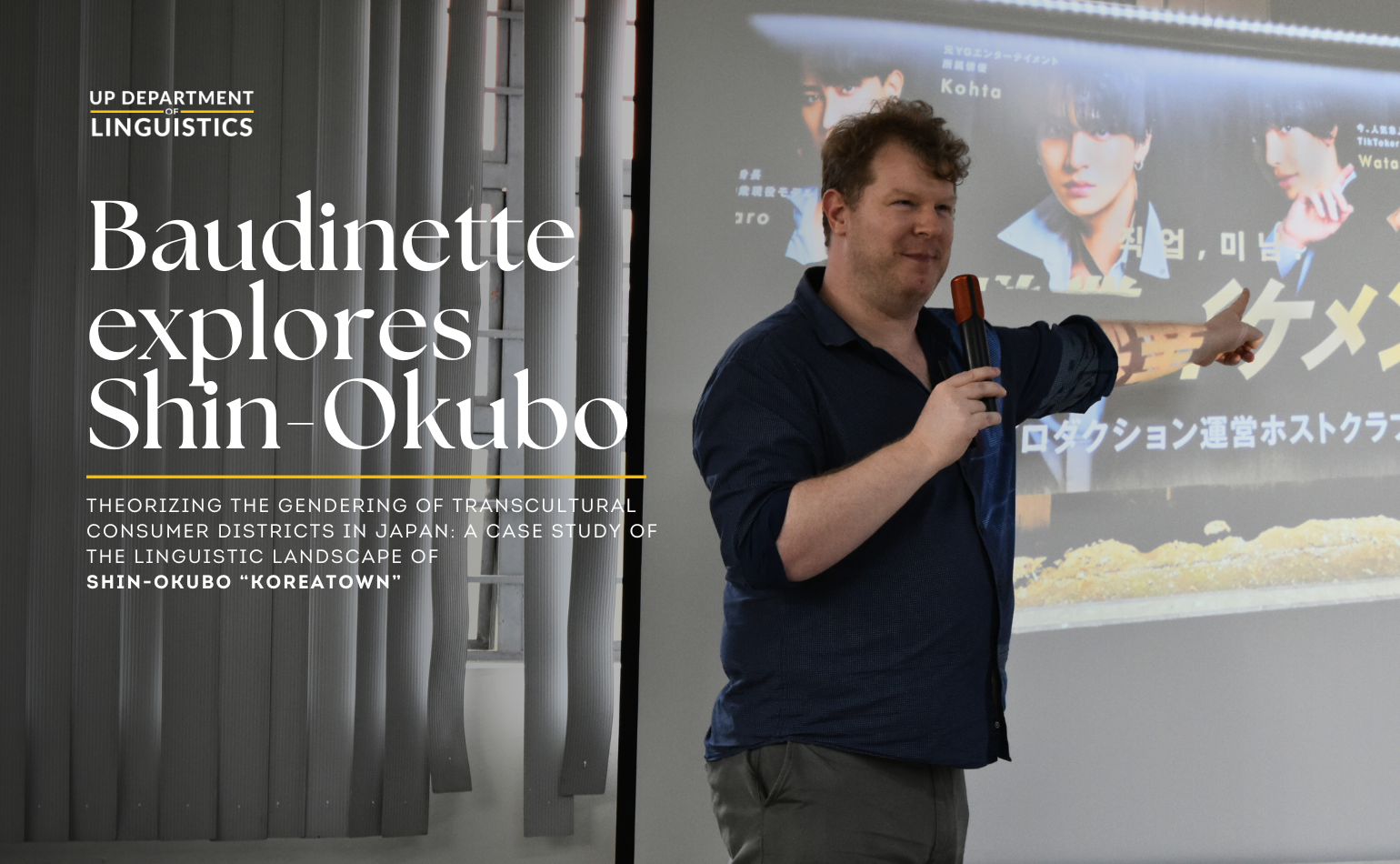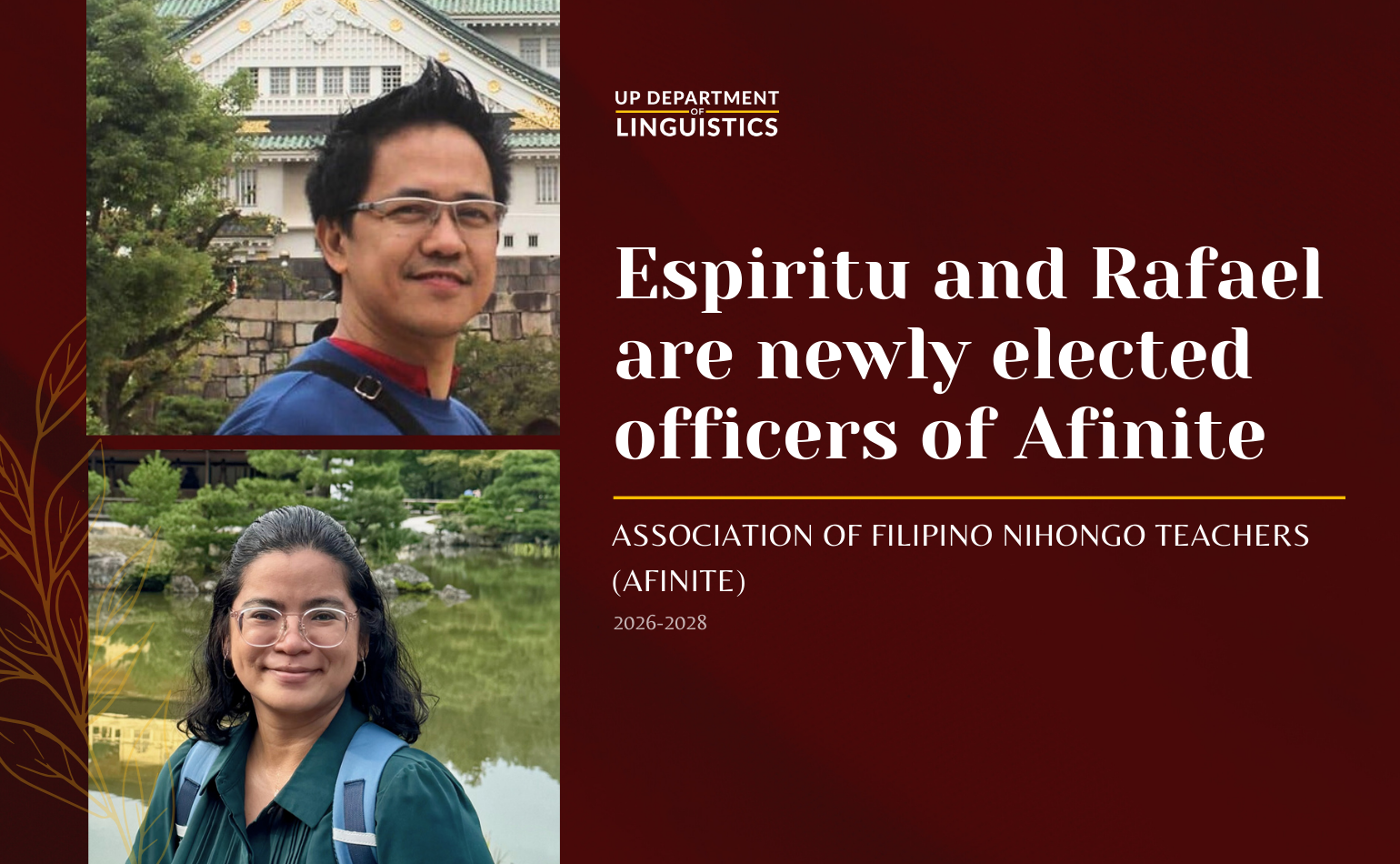
As part of its centennial year activities, the Department of Linguistics organized the first installment of its 2022 Linguistics Special Lecture Series (LSLS). Political anthropologist Dr. Gerald Roche (La Trobe University) was invited to discuss the circumstances that have encouraged people to react in a certain way to the issue of language oppression. Titled “Why we aren’t outraged by language oppression: A history,” the webinar was held on September 27, 2022 in cooperation with The Katig Collective.
Two questions provided the framework for Dr. Roche’s lecture: First, “if language oppression is an injustice, why do we need to be reminded to be outraged about it?” Second, “why do people often become the target of others’ outrage if they try to talk about language oppression and genocide together?”
Roche pointed out that while “we live in an age of anger,” public outrage often does not cover language oppression. Unlike climate change or gender equality issues which receive support from many social movements and organizations around the world, the discourse on language oppression seems to interest only small groups of people, and efforts directed towards promoting conversation on the topic are often individualized. He also borrowed the idea of “mood” from Jonathan Flatley’s article “How a revolutionary counter-mood is made” (2012) and explained that a shift in public mood is imperative in adjusting or realigning the general sentiment about the suppression of linguistic groups around the world. His main argument is as follows:
“A mood of outrage about language oppression—a generalized, public, global mood—is necessary to supporting language reclamation everywhere. If we’re going to turn around this global problem, we need a global mood of outrage. However, a number of historical events and the way that they are reproduced today through contemporary discourses have suppressed the emergence of that kind of political mood, and one such event is the formalization of the concept of genocide.“
He expounded on his historical investigation and detailed how language was gradually removed from the Genocide Convention and the United Nation’s official definition of the term. He noted that, although the protection of linguistic groups was classified under the cultural genocide clause, several interventions, questioning, and delegitimization, as well as the political agenda of several influential nations prevailed and eliminated language from having a secured place in the Convention. This non-inclusion of the issue of language oppression as a condition that could lead to cultural genocide is among the significant global events that led to the disregard of the importance of safeguarding languages and speaking communities.
Dr. Roche’s presentation was followed by an open forum. One participant inquired if a call exists to include linguistic groups in the UN definition of genocide. Roche responded that while the UN text undergoes reinterpretation from time to time, there seems to be no effort to reintroduce the cultural clause. He commented that “there are all sorts of interesting things happening around language […] within the United Nations such as the International Decade of Indigenous Languages. But, in terms of recognizing the fundamental place that language oppression plays within genocide […], there is no discussion of that ever happening.”
Other questions generated insights on the mismatch between the opinions of national leaders and the needs of linguistic communities, ideologically-motivated decision-making, contempt for linguistic diversity across time and space, and the declining situation of human and language rights defenders.
When asked if it is already too late for anything to be done, Roche replied that it is absolutely not too late. He ended by explaining that:
“So many languages spoken around the world today are in precarious situations, but they still have speakers; they still have population; they have intergenerational transmission that might be declining; or they still have speakers who know the language and can transmit it to other people. It’s really only too late when all the languages in the world have no speakers, no records […]. There is so much reason for hope in terms of the world’s languages. But the crucial thing to mobilizing, to capitalizing, on that hope is the generation of that political mood which enables people to not just act locally where they are to reclaim their languages and to do that massive, important, dangerous, risky, political work but also mobilizing solidarity with one another to recognize that what I do, you do, we do is all connected. That really needs that political mood to align everyone’s actions or understandings of what’s happening.”
The recording of the Roche’s LSLS talk “Why We Aren’t Outraged by Language Oppression: A History” can be viewed on the Department’s YouTube channel.
Published by Patricia Asuncion



